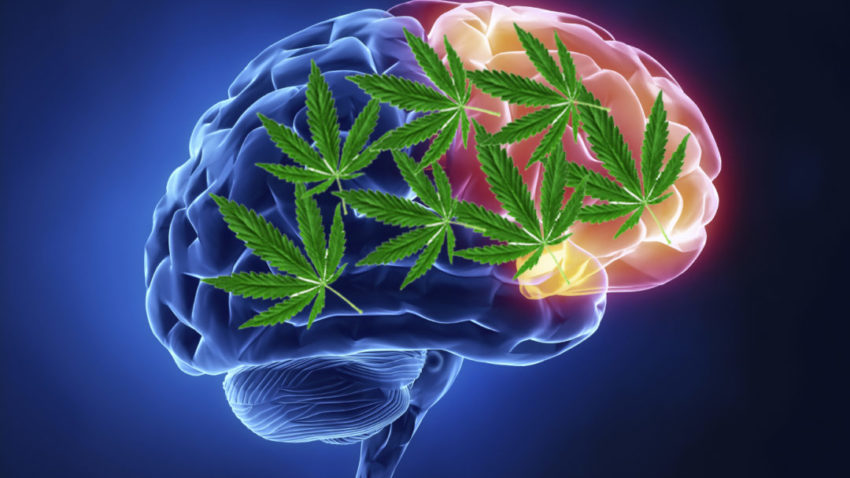If you have a seizure disorder, you will qualify for a medical marijuana card in Florida!
There’s nothing like not being able to take part in certain activities because of the fear that activity may cause another life threating seizure. There are numerous conditions that can cause a person to have seizures at uncertain times. Even though there are prescriptions available that can provide patients whom have seizures with temporary relief such as Keppra and others, that often leads to much greater issues. More and more doctors are recommending medical marijuana instead of western mediations.
Patients in Florida who are living with conditions that cause seizures can request an appointment with a physician who can provide approval for a medical marijuana card today. For information on the ways medical marijuana can help patients manage conditions that cause seizures, please continue reading below.
One of the most common neurological conditions that causes seizures is epilepsy. The causes of epilepsy are largely unknown, but it is capable of affecting men and women across all backgrounds.
Even though there are prescriptions available that can provide patients whom have seizures with temporary relief such as Keppra and others, that often leads to much greater issues. More and more doctors are recommending medical marijuana instead of western mediations.
Patients in Florida who are living with conditions that cause seizures can request an appointment with a physician who can provide approval for a medical marijuana card today. For information on the ways medical marijuana can help patients manage conditions that cause seizures, please continue reading below.
One of the most common neurological conditions that causes seizures is epilepsy. The causes of epilepsy are largely unknown, but it is capable of affecting men and women across all backgrounds.
 Even though research is still mostly in its early phases, there is overwhelming scientific evidence that backs medical marijuana as an option for therapeutic relief for people living with epilepsy. In fact, one of the earliest treatment remedies for epilepsy in documented in cannabis therapy.
Even though research is still mostly in its early phases, there is overwhelming scientific evidence that backs medical marijuana as an option for therapeutic relief for people living with epilepsy. In fact, one of the earliest treatment remedies for epilepsy in documented in cannabis therapy.
The reason why cannabis was highly touted as an effective treatment option for patients dealing with epilepsy is because of its ability to ease the pain that comes with it. Both the THC and CBD present within cannabis possess an ability to effectively manage pain, but most research states that CBD is more effective in helping to control seizures.
CBD is more effective at controlling seizures because of the fact that it reduces neuron excitability by acting on the brain’s TRPV1 and GPR55 receptors. Taking that into consideration, the best medical marijuana products for helping patients overcome epileptic seizures are those that include high amounts of CBD.
After suffering from a traumatic brain injury caused by seizures, medical marijuana can be an effective solution to provide relief for numerous reasons. Contrary to popular belief, cannabis has a multitude of neuroprotective qualities. These qualities are essential in helping patients reduce neurological impairment and swelling. CBD in particular has the ability to lower the brain’s oxidative stress levels.
Aside from helping with seizures, medical marijuana can also help overcome numerous other symptoms associated with traumatic brain injury including worsening headaches and nausea. There are numerous medical marijuana products available at dispensaries capable of helping patients deal with traumatic brain injuries that don’t entail smoking, too. Patients in Florida’s medical marijuana program have access to both CBD and THC dominant versions of tinctures, edibles and topicals that are capable of providing relief. When it comes to managing pain associated with traumatic brain injury, the best practice is to use a little of both THC and CBD to gain the full benefits of the entourage effect.
If you or someone you know is suffering from a condition causing seizures, there’s no need for them to be restricted to unnatural medications. Medical marijuana in Florida is now legal to help patients treat many different conditions including seizure disorders. When ready to begin the process, simply schedule an appointment with a Florida medical marijuana physician at a location in your area today. Take the first step to treating your seizures with an All Natural MD remedy.
Check out FloridasMedicalMarijuana.com’s Blog to keep up to date on the latest medical marijuana news, tips, and information.
Given the severity of the symptoms that come with ulcerative colitis, people living with the condition are likely open to just about any suggestion that could provide relief. Over the course of recent years, more research has backed medical marijuana as a solution for people hoping to overcome ulcerative colitis symptoms. This is welcome news considering the somewhat detrimental side-effects some medications for ulcerative colitis leave patients feeling. To find out more about why medical marijuana provides relief from ulcerative colitis symptoms, continue reading below.
Among the many symptoms people living with ulcerative colitis are faced with, one of the most detrimental is appetite reduction. This is the case because not eating causes nutrient deficiencies that can cause the disease to do further damage to the body. Dramatic losses in weight can be harmful to a person’s health for plenty of reasons as well. Fortunately medical marijuana in Florida has proven to be effective in helping to restore people’s appetites.
Taking that into consideration, there are numerous strains of medical marijuana that are capable of increasing a patient’s appetite. Among the best strains for stimulating the appetite are gorilla glue, sour diesel, grand daddy purple. Patients who have access to medical marijuana in Florida can purchase these products from Trulieve medical marijuana dispensary in Florida!
The inflammation caused by ulcerative colitis can lead to abysmal levels of pain and discomfort throughout the body, but mainly in the abdomen and stomach areas. That’s the case because ulcerative colitis inflames the rectum and digestive tract. That inflammation can also cause symptoms that include nausea and diarrhea. Dealing with those, along with other symptoms caused by ulcerative colitis can make doing the most basic but necessary things like getting a good night’s sleep nearly impossible.
Fortunately for people living with ulcerative colitis, there is scientific research that backs medical marijuana as an effective solution for providing relief from those symptoms. According to a study containing responses from nearly 300 participants, nearly one-fifth of respondents claimed that medical marijuana was very helpful in relieving symptoms including abdominal pain, nausea and diarrhea.
There’s a wide variety of medical marijuana products that are capable of providing relief from pain caused by inflammation, too. Some of the best strains for inflammation include Velvet Glove and Birthday Legend. Floridians with a medical marijuana card can purchase Velvet Glove and Birthday Legend from MUV Medical marijuana dispensaries in Florida.
People that are new to the concept of medical marijuana may have trouble figuring out where to start. Walking into a medical marijuana dispensary information for the first time without any background information about what products would be best for treating ulcerative colitis symptoms could be even more overwhelming. Some of the best medical marijuana products for treating ulcerative colitis are available at medical marijuana locations in Florida.
Given the fact that many patients in Florida are unaware of the ins and outs of the status of the medical marijuana program, it’s fair to assume that there are numerous questions about how it works. Anyone in Florida who has questions about how medical marijuana can help overcome symptoms associated with ulcerative colitis or any other condition can get their questions answered by patient support representatives over the phone. All Natural MD is compassionate, caring and willing to answer all your questions 800-250-6737. We can help you get your Florida medical marijuana card license quickly and easily.
Once all your questions have been addressed, it’s time to make an appointment with a Florida medical marijuana physician who is capable of issuing you a medical marijuana card approval in Florida.
Check out FloridasMedicalMarijuana.com Card’s Blog to keep up to date on the latest medical marijuana news, tips, and information.
Marijuana in Florida and around the United States is becoming more widely recognized for its contribution to medical science. It commonly contains CBD and THC, which are two of the main active components in cannabis and they are mostly distributed in certified medical marijuana dispensaries. Presently, medical marijuana is among the prescribed medications in helping reduce symptoms in common illnesses that many people suffer from in their everyday lives.
What are some of the most common conditions that patients use medical marijuana for in Florida?
Many people suffer from different illnesses. Some of these conditions may have started since birth while others may have been acquired over time. Multiple medications have been developed over the years to help in treating such illnesses. In this decade, medical marijuana is one of the continuously developed medications tested for treatment. Using prescribed medical marijuana is now common among patients who mostly suffer from chronic diseases in Florida and other areas of the States.
Epilepsy and Seizures
Characterized by seizures that range from mild to severe, epilepsy is a neurological condition. Those people who suffer from it spend most of their day (also almost everyday) dealing with the threat of seizure or actually experiencing it. Using approved medications like Epidiolex or CBD is one way to reduce the feeling of exhaustion as well as to improve life quality of patients suffering from this illness. These medications can help in controlling the nature of seizures and ensure a reduced risk for patients to experience the typical intensity and number of seizures they have in a day.
Anxiety and Depression
Medical marijuana can offer beneficial effects in subsidizing the symptoms of anxiety as well as depression. It helps patients relax and manage the symptoms by regulating serotonin levels.
Cancer
About 30 percent of deaths are due to cancer. Despite the fact that there isn’t any cure for cancer yet, it can help in reducing the gravity of the symptoms. THC and CBD, as studies show, can help in improving appetite and prevent weight loss and eating disorders that most cancer patients also suffer from. It is also an effective element in fighting nausea, which is commonly a side effect of cancer treatments like chemotherapy.
Chronic Pain and Muscle Spasms
Common chronic ailments such as arthritis cause pain and muscle spasms. With the use of medical marijuana, chronic pains can be controlled. You can apply CBD/THC on the swollen joints as it is also a good pain absorbent. CBD oil also helps you sleep when you suffer muscle spasms and manages symptoms to help you relax.
Spinal Cord Diseases
Spinal cord ailments include scoliosis, stenosis, and syringomyelia, among others. Patients who suffer from such illnesses often find a therapeutic experience in using prescribed cannabis-based medicines. Cannabis is typically known to have the ability to ease spasticity, offering patients the feeling of being relaxed and pain-free.
Eating Disorders
Cannabis helps in improving appetite and in regulating the symptoms of eating disorders. People who suffer from such illnesses are often prescribed with medical marijuana for regular use as it also serves as a good supplement for them. CBD also helps and treats those who suffer from digestive issues.
Sleeping Disorders
According to studies, medicines that are CBD- and THC-based offer proven and effective therapeutic benefits to those who suffer from sleeping disorders such as insomnia. It helps patients to sleep and have a regular and relaxed sleeping cycle.
HIV/AIDS
Over the last few decades, the treatment for HIV/AIDS has improved. Although there are now modern treatments that can help patients have long and healthy lives, there is still no denying the fact that they can suffer from the side effects of the treatment. Similar to cancer, it has been shown in studies that cannabis-based medications can help in regulating the symptoms of HIV/AIDS like nausea, eating disorders, and more.
Where to Go for Medical Marijuana in Florida?
Are you looking for high-quality medical marijuana in Florida for your prescribed medication? The All Natural MD group is one of the top, trustworthy, and reliable medical marijuana doctor groups in Florida. If you’re interested in getting your medical marijuana doctors certification and ID card in Florida, please contact All Natural MD to Find a medical marijuana doctors location in Florida 800-250-6737.



